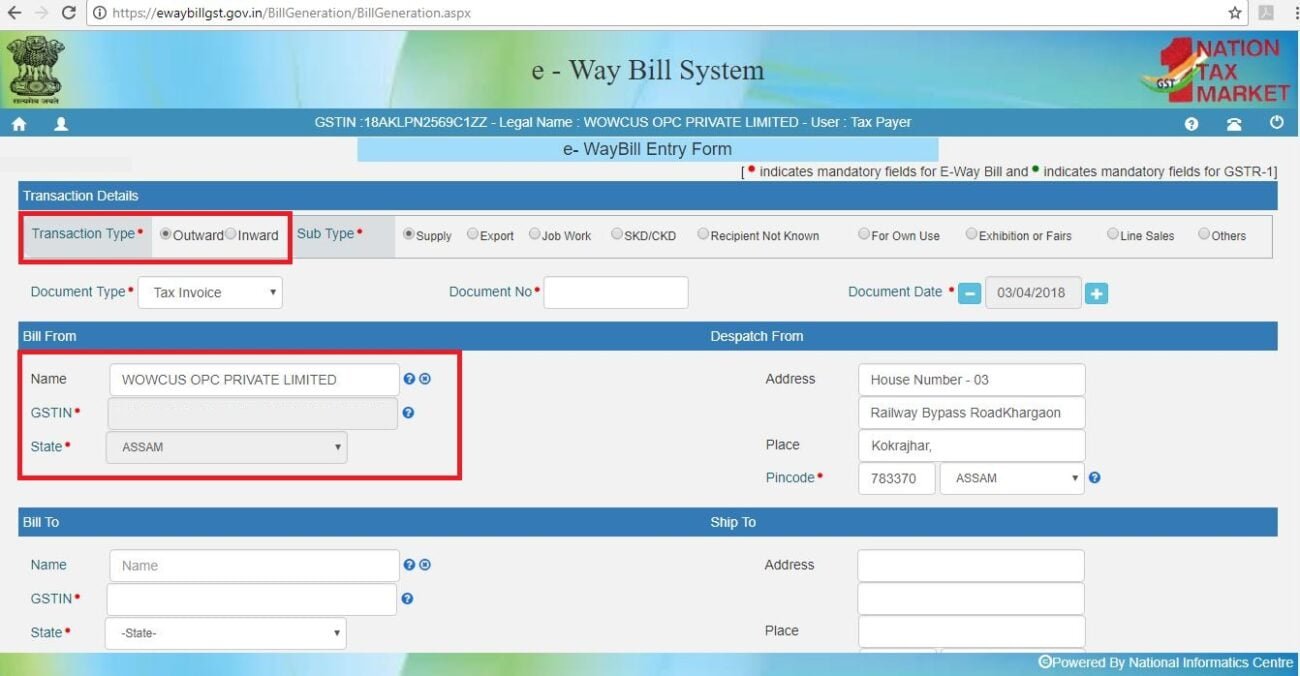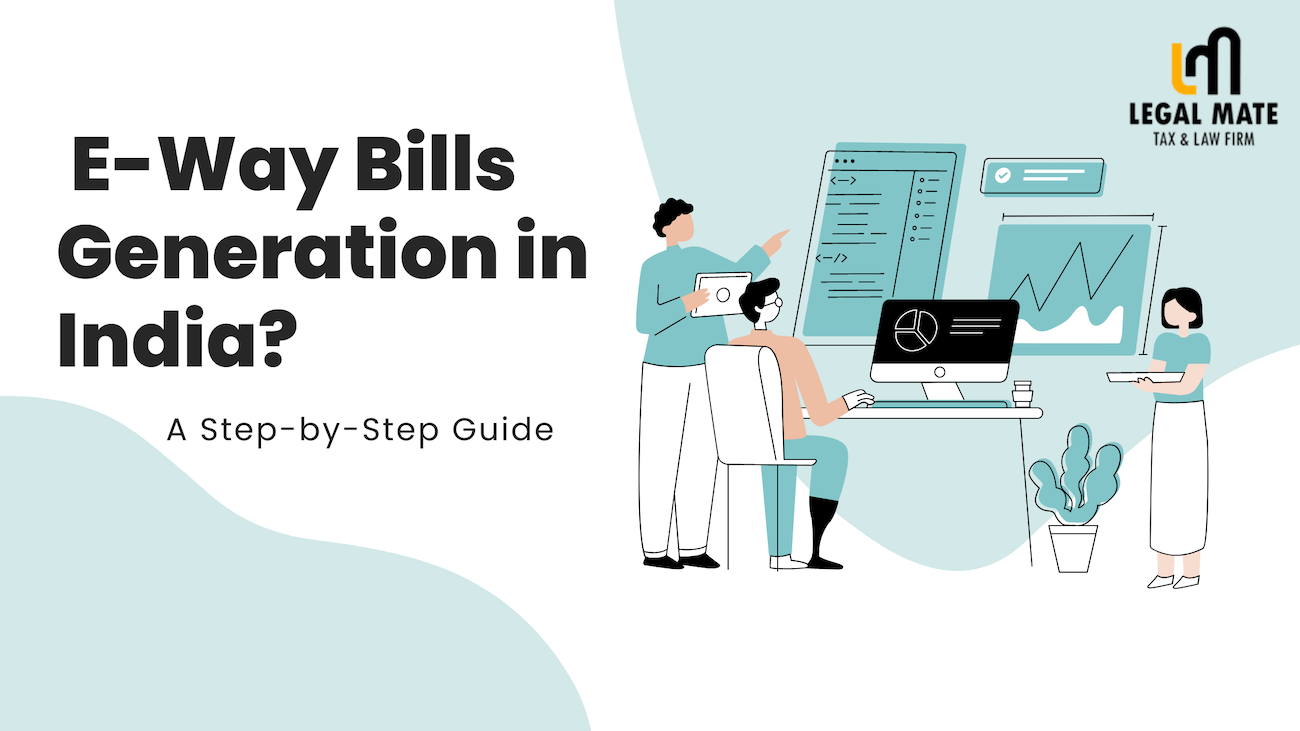Under the products and Services Tax (GST) regime in India, the eway bill is essential for maintaining transparency and expediting the flow of products. This electronic document acts as a permit for the interstate and intrastate transportation of commodities above a certain value threshold. Businesses may handle the eway billing procedure effectively and guarantee trouble-free product shipping by being aware of its nuances.
What is an E-Way Bill?
An eway bill is an electronic document generated on the official e-way bill portal (https://ewaybillgst.gov.in/) or through integrated applications. It acts as a digital permit for the movement of goods valued at more than ₹50,000 (Indian Rupees).

What Eway Bill Contains?
Important information regarding the consignment is provided in this document, including:
- Description of the goods
- Value of the consignment
- Name and GST Identification Number (GSTIN) of the supplier (consignor)
- Name and GSTIN of the recipient (consignee)
- Origin and destination of the goods
- Transporter details (if applicable)
When is an E-Way Bill Required?
E-way bill generation is mandatory for the movement of goods exceeding ₹50,000 in the following scenarios:
- Inter-state movement: Transportation of goods between two different states in India.
- Intra-state movement: Transportation of goods within the same state.
Why Eway Billing Matters
Eway billing is important because it:
- Makes sure taxes are paid correctly.
- Helps manage logistics better.
- Makes it easier to do business across different states.
- Improves how businesses work by keeping things transparent.
Benefits of E-Way Billing
E-Way billing helps businesses in several ways:
- Transparency: It makes the movement of goods clear and easy to track.
- Efficiency: By streamlining the billing process, it saves time and reduces errors.
- Compliance: It ensures businesses follow tax regulations, avoiding penalties.
- Cost Savings: Efficient logistics mean lower costs for businesses.
- Improved Record-Keeping: E-Way bills provide a digital record of transactions, making it easier to manage business operations.
How to Make an Eway Bill
- Visit the official e-way bill portal (https://ewaybillgst.gov.in/) and register using your GSTIN. (If don’t have GST? Register it through LegalMate)
- Login to the portal and navigate to the “E-waybill” section.
- Click on “Generate New” and enter the required details about the consignment.
- Once all details are entered, validate and submit the information.
- The system will generate the e-way bill, which you can download and print for your records.

Does Service Provider Need to Generate Eway Bill?
No e-way bill needed for service businesses! E-way bills are for goods movement, not services (unless goods are a major part of the service).
Difference Between E-way Bill and Invoice India
Both e-way bills and invoices are important documents in the Indian GST regime, but they serve distinct purposes:
E-Way Bill:
- Purpose: Permits goods transportation exceeding ₹50,000 within or across states.
- Captures: Consignment details, transporter info.
- Generated by: Supplier, recipient, or transporter with valid GSTIN.
- Validity: Time-bound based on distance.
- Benefits: Enhances transparency, simplifies compliance, improves logistics.
Invoice:
- Purpose: Records sale transactions between supplier and recipient.
- Captures: Goods/services details, price, tax, supplier/recipient info.
- Generated by: Mandatory for all registered businesses for each sale.
- Validity: No expiry, used for tax records.
- Benefits: Facilitates record-keeping, supports input tax credit claims, aids in dispute resolution.
Key Differences:
- Focus: E-way bill for goods movement, invoice for sale.
- Mandatory for: E-way bill for specific goods, invoice for all registered businesses.
- Validity: E-way bill has a time limit, invoice is a permanent record.






